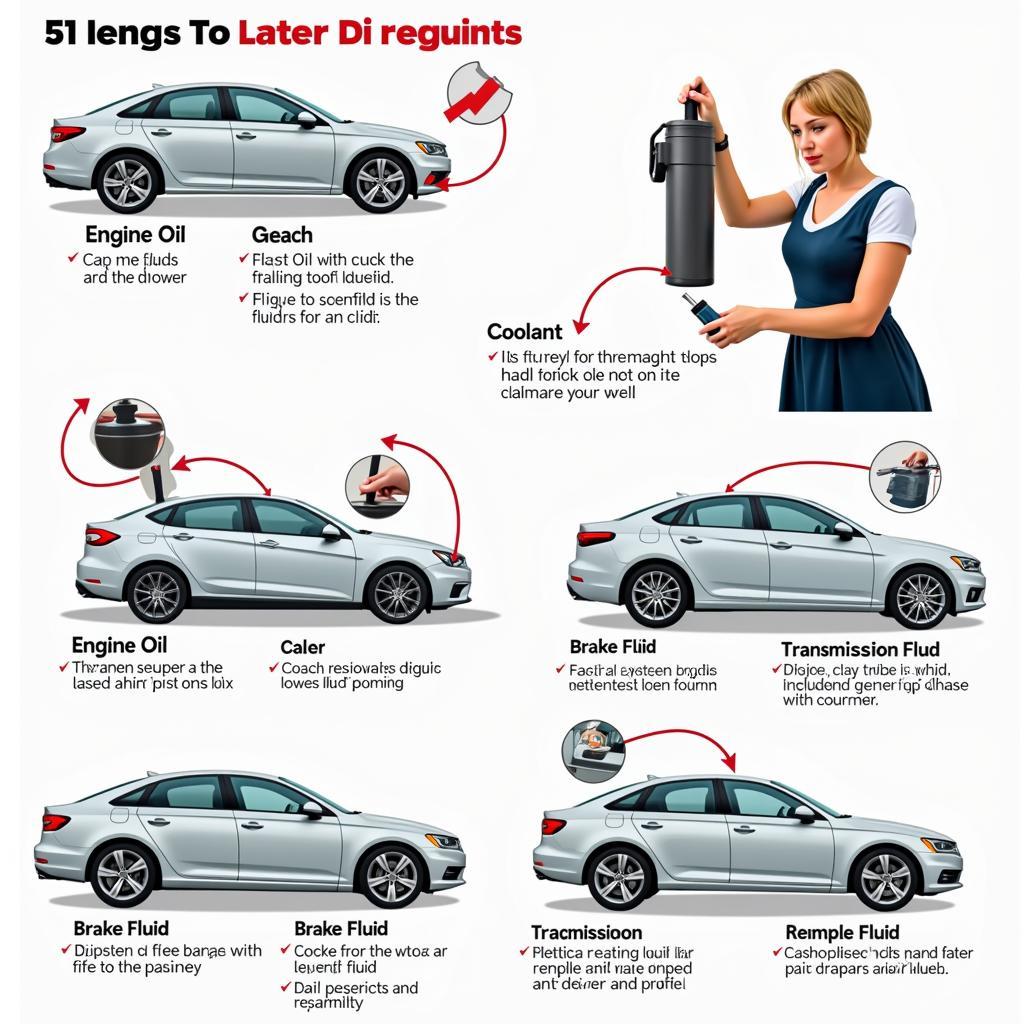Car problems involving the transmission can be a major headache for any car owner. From subtle slips to jarring jerks, transmission issues can significantly impact your vehicle’s performance and safety. Understanding the common symptoms, causes, and solutions can help you address these problems effectively, whether you’re a DIY enthusiast or seeking professional help.
Similar to transmission problems car, these issues can stem from a variety of factors, including wear and tear, fluid leaks, and electrical malfunctions. This guide provides a comprehensive overview of Car Problems Transmission, equipping you with the knowledge to diagnose, troubleshoot, and potentially resolve these issues.
Common Car Problems Transmission Symptoms
Identifying the symptoms is the first step in tackling transmission problems. Here are some common indicators that your transmission might need attention:
- Slipping Gears: This occurs when the transmission struggles to shift between gears smoothly, resulting in a feeling of the engine revving without corresponding acceleration.
- Rough Shifting: A jarring or clunky sensation during gear changes can indicate worn-out components within the transmission.
- Delayed Engagement: A noticeable lag between shifting into gear and the car actually responding.
- Transmission Fluid Leaks: Check for red or brown fluid under your car. Leaks can lead to low fluid levels, causing significant damage.
- Burning Smell: A burning smell coming from the transmission fluid is a serious sign of overheating and potential damage.
- Check Engine Light: While not always directly related to transmission issues, a check engine light can be triggered by transmission problems.
Why is My Car Having Transmission Problems?
Understanding the potential causes of transmission problems can help you determine the best course of action. Here are some common culprits:
- Low Transmission Fluid: Insufficient fluid levels can hinder the transmission’s ability to lubricate and cool its components, leading to premature wear and tear.
- Worn Clutch Plates: In automatic transmissions, worn clutch plates can cause slipping and rough shifting.
- Faulty Solenoids: These electronic components control the flow of transmission fluid and can malfunction, leading to shifting issues.
- Damaged Torque Converter: This crucial component connects the engine to the transmission and can fail due to wear and tear or fluid leaks.
- Wiring Problems: Electrical issues can disrupt the communication between the transmission control module (TCM) and the transmission, causing erratic behavior.
Diagnosing Car Problems Transmission
Diagnosing transmission problems accurately requires a systematic approach:
- Check the Transmission Fluid: Ensure the fluid level is correct and the fluid is clean and free of debris.
- Inspect for Leaks: Look for signs of leaks around the transmission pan, seals, and lines.
- Scan for Diagnostic Trouble Codes (DTCs): Use an OBD-II scanner to retrieve any stored codes related to the transmission.
- Test Drive: Pay close attention to the symptoms you’re experiencing and try to replicate them during the test drive.
This is similar to what happens if a car is having transmission problems, as early detection can prevent further damage and costly repairs.
Repairing Car Problems Transmission
Depending on the severity of the problem, transmission repairs can range from simple fluid changes to complete transmission rebuilds.
- Fluid and Filter Change: Regular fluid and filter changes can prevent many transmission problems.
- Solenoid Replacement: Faulty solenoids can often be replaced individually.
- Transmission Rebuild: In severe cases, a complete transmission rebuild might be necessary.
- Transmission Replacement: In some instances, replacing the entire transmission might be the most cost-effective solution.
Knowing about problems like smart car problems transmission can give you valuable insights and prepare you for potential issues with your specific vehicle.
When to Seek Professional Help for Car Problems Transmission
While some minor transmission issues can be addressed by DIY enthusiasts, it’s crucial to know when to seek professional help. If you’re experiencing complex problems like slipping gears, delayed engagement, or burning smells, it’s best to consult a qualified transmission specialist.
Just as with 94 lincoln town car transmission problems, understanding the specific issues associated with your car model can be invaluable. Consult with experienced mechanics familiar with your vehicle’s transmission system.
Conclusion
Car problems transmission can be a significant inconvenience, but understanding the symptoms, causes, and solutions can empower you to address these issues effectively. Regular maintenance, prompt diagnosis, and appropriate repairs can help keep your transmission running smoothly for years to come. Contact AutoTipPro at +1 (641) 206-8880 or visit our office at 500 N St Mary’s St, San Antonio, TX 78205, United States for expert assistance with your car problems transmission.
Considering selling a car with transmission problems? You might want to know will carmax buy a car with transmission problems. This information can help you navigate the process and make informed decisions.





Leave a Reply